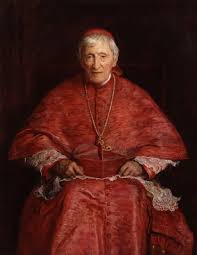In his book, Essay in Aid of a Grammar of Assent, St. John Henry Newman gives account of what might be described as a philosophy of faith. He thought logical proofs for things like the existence of God, even when sound, were unconvincing for many people because they failed to garner the right kind of belief or assent. In Newman’s thought, assent to a proposition or a set of propositions can be of two types: notional and real. Notional assent was a simple assent to a proposition or set of propositions as true. Real assent takes those same propositions and moves them from the head to the heart so that it becomes concrete and personal. A man patterns his life around a real belief while a notional belief only remains in the back of his mind. When it comes to questions of facts, notional assent is often sufficient. But when it comes to important questions, such as the existence of God, an assent “following upon acts of inference, and other purely intellectual exercises” is never a sufficient impetus to conversion. Instead Newman thinks that only real assent can act as a means of paving the way for the invasion of grace.
In Newman’s mind, it is very difficult for all but the most erudite of philosophers to give real assent to the logical, deductive, metaphysical proofs of someone like St. Thomas and his Five Ways. These proofs are not defective in any way, in fact they are quite the contrary, having stood the test of time by offering certain proof of the existence of God. Instead Newman thinks real assent can only be given when a person’s experience leads them to a real encounter with God. For Newman this means turning to inductive proofs that leads one to the probable conclusion that God exists. Newman thinks he found a universal subjective experience that proves the existence of God in moral obligation.
Conscience as a Universal Experience
Newman’s Argument from Conscience as it has most often been called is one of the most effective arguments for the existence of God. This is because it builds upon a universal experience. We all judge our own actions according to whether they are right or wrong. Once this judgement is made, we experience an obligation to do what is right and avoid what is wrong. We do not always judge correctly, but we cannot avoid judging. Likewise, the experience of guilt always accompanies when we don’t choose according to our judgement.
Stepping outside of ourselves and looking at the universality of this experience we must admit that it is rather strange, especially considering that we appear to be both judge and judged. We speak of conscience as a voice (or an echo of a voice) that is both imperative and constraining and it is like no other dictate in our experience. Who, in judging himself, would ever declare guilt unless the voice of conscience somehow connects us to someone beyond ourselves? When we look in the world, we find no source for this voice (more on this in a moment) and so Newman thinks that “If, as is the case, we feel responsibility, are ashamed, are frightened, at transgressing the voice of conscience, this implies that there is One to whom we are responsible, before whom we are ashamed, whose claims upon us we fear.” Conscience then, according to Newman, is “a connecting principle between the creature and his Creator.”

Freud would tether us to a this-worldly explanation to keep us from leaping from conscience to God. He explains guilt as “tension between the ego and the superego.” The superego is something akin to conscience but it contains only faint echoes of human authorities, especially in our formative years. This mechanistic explanation of guilt however does not explain the absoluteness with which the dictates of conscience are felt. Rather than seeming like a transgression of a merely human authority, guilt is experienced as a breaking with the Absolute. We feel guilty because we know we are guilty.
Why the Argument Works
Recalling to mind the context in which Newman presents the argument, we can see why it might be so convincing. Conscience as the “aboriginal vicar of Christ” presents God not merely as a Voice out there, but One Who is close to me. To grasp this though we must move from the notion of conscience as a source of guilt to conscience as spurring us on towards what is truly good. It is not just the voice of Judge, but of a Father, that desires our well-being in everything. If we but listen to its voice, conscience no longer acts like a referee keeping us from breaking rules but a coach teaching us to excel in the game of life. As Newman puts it, “the gift of conscience raises a desire for what it does not itself fully supply. It inspires in them the idea of authoritative guidance, of a divine law; and the desire of possessing it in its fulness, not in mere fragmentary portions or indirect suggestion. It creates in them a thirst, an impatience, for the knowledge of that Unseen Lord, and Governor, and Judge, who as yet speaks to them only secretly, who whispers in their hearts, who tells them something, but not nearly so much as they wish and as they need” (Sermons preached on Various Occasions, Dispositions for Faith).
Presented then in this light, Newman’s Argument from Conscience paves the way not just for notional assent, but real assent. As the person begins to listen more and more to his conscience, even if poorly formed at first, he develops a taste for the good. That desire for the Good manifests itself in desiring only what is truly good and the soul begins to look for the moral maps that God provides through the Church. Judging correctly more and more often, especially as they open themselves up to grace as a gift from the God Who has speaks to them louder and louder through an informed conscience. The Argument from Conscience truly paves the way for conversion.


